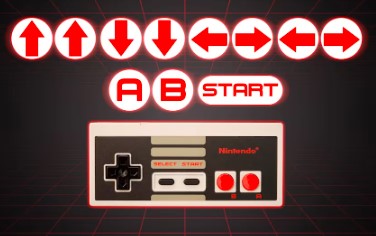Video game cheats have been a part of gaming culture since the early days of arcade and home console games. These cheats, often in the form of codes, exploits, or secret tricks, have provided players with various advantages, from extra lives to unlocking hidden content. This article explores the origins and evolution of game cheats, highlighting some of the most iconic examples and their impact on the gaming industry.

The Origins of Game Cheats
Game cheats can be traced back to the late 1970s and early 1980s when arcade games dominated the gaming landscape. Developers initially created cheats as testing tools to help them debug and fine-tune their games. These early cheats were often left in the final versions of games, sometimes intentionally, sometimes by accident.
Arcade Games and Debugging Tools
In the era of arcade games, developers needed ways to test their games quickly and efficiently. Cheats allowed them to skip levels, gain invincibility, or access hidden areas to ensure everything worked correctly. One of the earliest known cheats was in the arcade game “Asteroids” (1979), where players could trigger a debug mode by pressing a series of buttons, providing infinite lives and other benefits.
The Rise of Home Consoles
With the advent of home consoles like the Atari 2600 and the Nintendo Entertainment System (NES), game cheats became more accessible to the average player. Developers often included cheat codes as Easter eggs or rewards for players who explored the game thoroughly. These cheats ranged from simple button combinations to more complex sequences.
Iconic Game Cheats in Early Gaming
Several game cheats have become legendary in gaming history, often remembered for their creativity and the significant advantages they provided.
The Konami Code
Arguably the most famous cheat code of all time, the Konami Code (Up, Up, Down, Down, Left, Right, Left, Right, B, A) first appeared in the 1986 NES game “Gradius.” Created by developer Kazuhisa Hashimoto, the code was initially used to help him test the game more easily. It was later popularized in “Contra” (1987), where it granted players 30 extra lives, making the notoriously difficult game more manageable.
Warp Zones in Super Mario Bros.
“Super Mario Bros.” (1985) introduced many players to the concept of secret areas and warp zones. By finding hidden pipes, players could skip entire worlds, making their journey to rescue Princess Peach much faster. These warp zones were an early form of cheat, rewarding players for exploring the game thoroughly.
SimCity’s “FUND” Code
In the original “SimCity” (1989), players could enter the code “FUND” to receive an instant cash boost. This cheat allowed players to build their dream cities without worrying about financial constraints, significantly altering the gameplay experience.
The Evolution of Game Cheats
As gaming technology advanced, so did the complexity and variety of cheats. The introduction of PC gaming brought new opportunities for cheat codes and modifications, while the internet enabled the widespread sharing of cheat information.
PC Gaming and Cheat Software
PC games in the 1990s saw a proliferation of cheat codes and third-party software designed to alter game files. Programs like “Game Genie” and “Action Replay” allowed players to input codes that could modify various aspects of a game, from health points to unlocking hidden levels. These tools gave players unprecedented control over their gaming experiences.
The Internet and Online Communities
The rise of the internet in the late 1990s and early 2000s revolutionized the way cheats were shared and discovered. Websites like GameFAQs and CheatCC became popular destinations for gamers seeking cheat codes, walkthroughs, and tips. Online communities fostered a culture of sharing and collaboration, making it easier for players to access and disseminate cheat information.
Modern Game Cheats and DLC
In the modern era, cheats have taken on new forms. While traditional cheat codes are less common, downloadable content (DLC) and microtransactions offer players the ability to purchase advantages or unlock content. Some games still include cheats as Easter eggs, but the focus has shifted towards in-game purchases and premium content.
The Impact of Game Cheats on the Industry
Game cheats have had a lasting impact on the gaming industry, influencing game design, player behavior, and the culture of gaming itself.
Encouraging Exploration and Replayability
Cheats often encourage players to explore games more thoroughly, uncovering hidden secrets and alternative ways to play. This enhances replayability, as players return to games to discover all the cheats and hidden content.
Balancing Challenge and Accessibility
Cheats can make challenging games more accessible to a broader audience. By providing ways to ease difficulty, cheats allow players of varying skill levels to enjoy the game. This balancing act helps games appeal to both hardcore and casual gamers.
Ethical and Competitive Considerations
The use of cheats in competitive gaming raises ethical questions. In multiplayer games, cheats can create an unfair playing field, leading to issues of balance and fairness. Developers often implement anti-cheat measures to maintain a level playing field and ensure a fair gaming experience for all players.
Conclusion
From their origins as debugging tools to their evolution into widely shared secrets, game cheats have played a significant role in the history of video games. They have shaped how games are played, discovered, and enjoyed, leaving an indelible mark on gaming culture. As technology and gaming continue to evolve, cheats will likely remain a fascinating and integral part of the gaming experience.
Meta Description
“”
